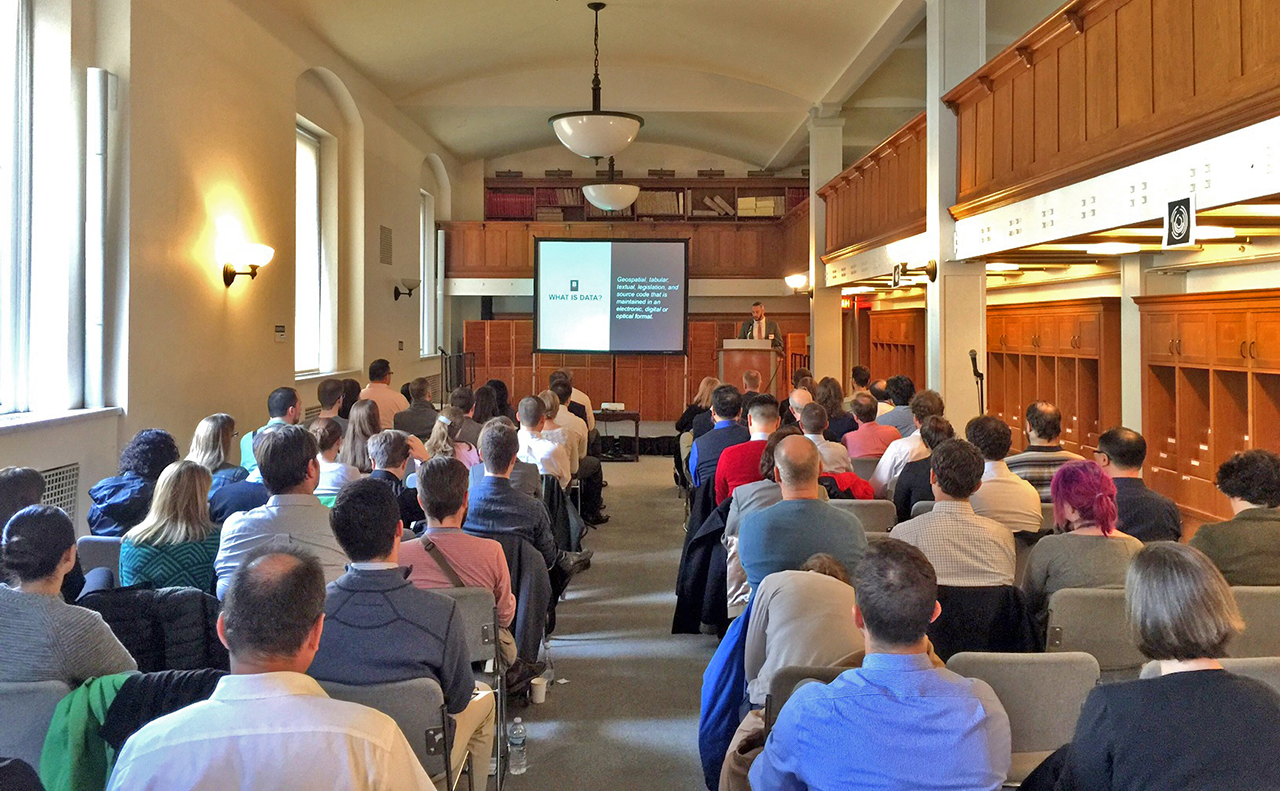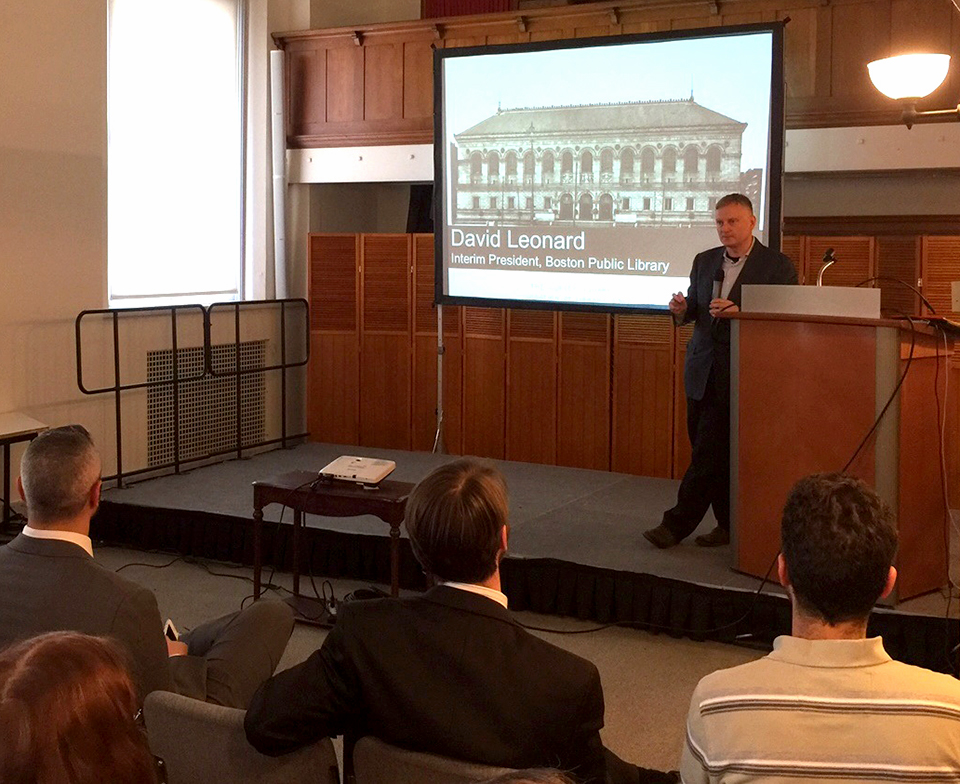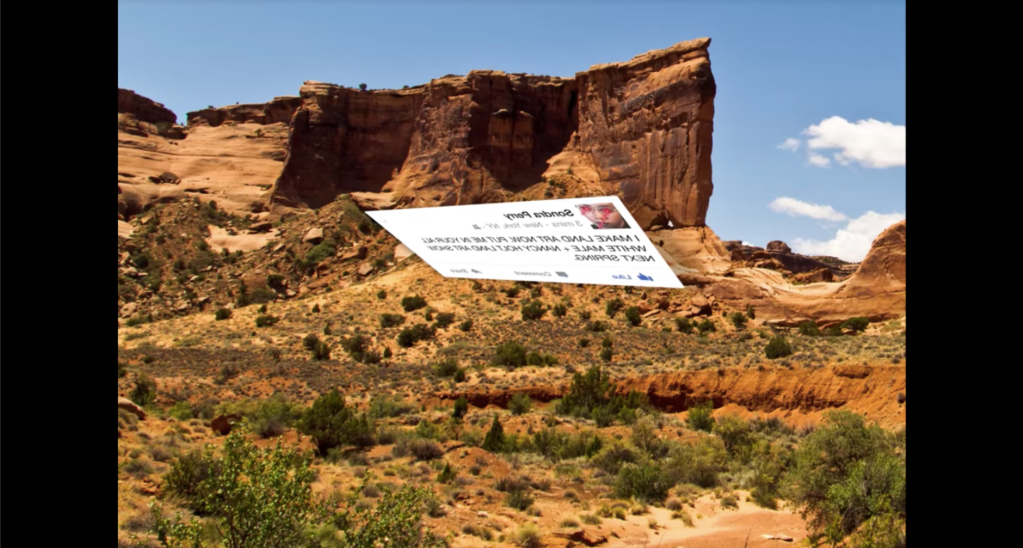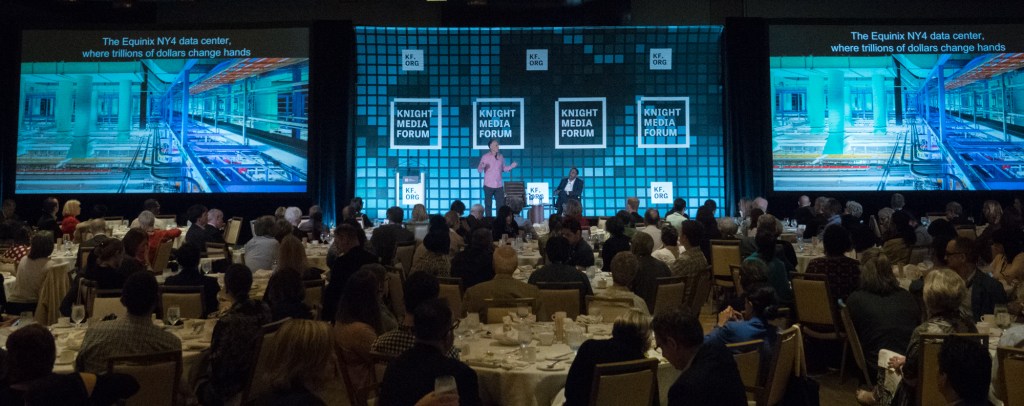
How the city of Boston is making its data accessible to everyone
Above: Jascha Franklin-Hodge, the city of Boston’s CIO, describes the importance of data and open data to drive innovation during Boston’s first Data Coordinator Summit. Credit: Howard C. Lim.
Howard C. Lim is the project manager for the city of Boston’s Open Data to Open Knowledge project, a winner of the Knight News Challenge on Libraries.
Boston is a city with a distinguished history of firsts.
For example, the nation’s first public park, Boston Common, was designated way back in 1634. The Mather School founded in Dorchester in 1639 is the first public elementary school in America. The Boston Public Library shares a notable history as well. It is the first library to lend books to the public and the first library to establish a branch system. To honor this rich tradition and kick-start the Open Data to Open Knowledge project, one of the first open data initiatives to collaborate closely with libraries, the Boston open data team hosted the city’s first Data Coordinator Summit at the Boston Public Library Commonwealth Salon on March 30, 2016.
About 70 city employees gathered at the library to learn about Boston’s newest open data project to democratize access to city data. The audience was particularly special because the attendee list included the newly identified data coordinators from an overwhelming majority of the city’s 45 departments. The summit not only convened key city employees, but it also served as a great platform to share the vision and importance of data and open data within the city.

Photo: Interim Boston Public Library President David Leonard highlights the enduring importance of libraries as community centers for learning. Credit: Howard C. Lim.
As noted by Boston’s CIO, Jascha Franklin-Hodge, open data has the potential to spur government transparency and accountability while creating an ecosystem of innovation. A point illustrated by another summit presenter, Mapkin, a Boston-based software developer that exposed the city’s established bike lanes on their mobile application to provide drivers with safer and more detailed GPS driving directions. Additionally, Northeastern Professor Daniel T. O’Brien provided a brief perspective into his research that is made possible by open access to the city’s 311 data.
Boston Public Library Interim President David Leonard nicely grounded the conversation with remarks that articulated the enduring importance of libraries as community centers of learning. This key observation serves as the foundation for this open data initiative and was recently quantified in a Pew Research Center survey that found that nearly 80 percent of Americans wanted their libraries to offer programming on digital tools.
As we set out to complete much of the upcoming work outlined during the summit, we hope to work closely with each of the department level data coordinators to learn from their vast institutional knowledge. By partnering and working collaboratively, we aim to create an enduring open data resource and a supporting curriculum for librarians to democratize access to data for all users.
Contact Howard C. Lim via email at [email protected].
Recent Content
-
Artsarticle ·
-
Artsarticle ·
-
Communitiesarticle ·


